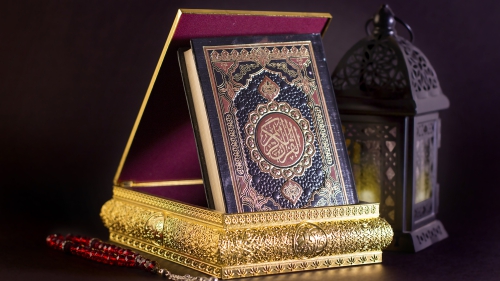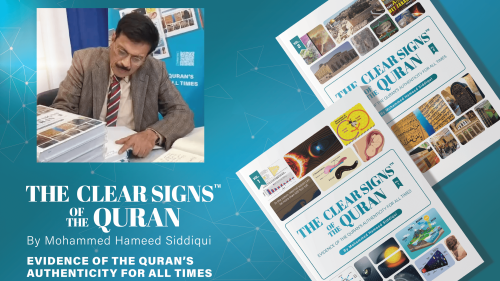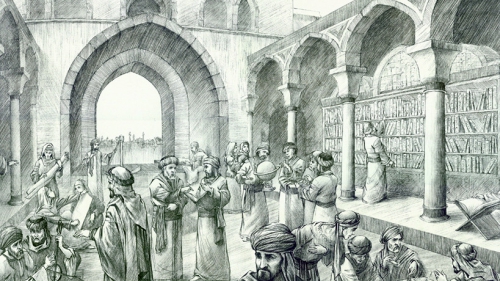Pakistan's latest Rhodes scholars
Prof. Pervez Hoodbhoy recently wrote a trenchant critique of the sorry state of higher education in Pakistan.
The good news is that despite having a failing educational system, Pakistan is still capable of producing stars every year. I had the chance to interview two of them via e-mail recently. Both have just been awarded the prestigious Rhodes scholarship by Oxford University.
Every year, Pakistan gets two Rhodes awards while India, with a population seven times bigger, gets only six. I am not sure how to explain this ratio. The U.S., meanwhile, with a population twice as large as Pakistan's, gets 32.
Bill Clinton is probably the most famous American Rhodes scholars. General Wesley Clark is another one.
Here is what these two young bright Pakistanis have to say about their award, their career plans, the state of education in Pakistan and whether military rule is good for the country.
Most public institutions (in Pakistan) are plagued by lack of funding and dwindling standards. Asma faults government policies that don't allocate sufficient funding to the higher education sector and the manner in which these funds are spent. Ali says that the returns from education are low in Pakistan and this prevents the universities from being able to attract good students.
 |
Asma Aleem Hussain and Ali Farid have been selected for the Rhodes scholarship. Both are graduates of the Lahore University of Management Sciences (LUMS). I had an opportunity to interview them about their award, what they plan to study at Oxford and their career plans. I also asked them to comment on the state of Pakistan's educational institutions and on whether military rule was good for the country.
I honestly did not expect to hear much from them, since the interviews were conducted by e-mail. Both surprised me with the promptness and depth of their responses.
Every year, the Rhodes program selects two applicants from Pakistan for advanced study at Oxford University in a program of their choosing. The Rhodes philosophy is to invest in individuals rather than in projects.
The selection process begins more than a year in advance. There is an open call for applications from which 10 are short-listed. Applicants must have an undergraduate degree and be Pakistani citizens under 25 years of age. The two winners are selected after being interviewed by the Rhodes Selection Committee headed by Wasim Sajjad.
The selection criteria are designed to key in on individuals who are capable of effectively utilizing the Rhodes experience in their home country. Intellectual distinction is a necessary but not a sufficient condition for selection.
In any given year, about 250 scholars are in residence at Oxford from a wide range of countries. The largest contingent is from the U.S, which sends 32 scholars, followed by Australia and Canada with 11 each. India sends six. Since 1977, both men and women are selected for the program.
Asma cited the strong Rhodes tradition at LUMS for sparking her interest in the program. She intends to pursue a master's degree in management research and then go on to get a doctorate. Ultimately, she sees herself working on development projects with a technology focus. Ali wants to spend a year at St John's College and then work as an economist in the financial sector.
Both are very proud of their LUMS education. Ali credits the "LUMS culture based on integrity, honesty and hard work" for making his time there a truly rewarding experience.
I asked Ali and Asma why Pakistan had failed to develop engineering schools that compare with the Indian Institutes of Technology, which were initially modeled after the Massachusetts Institute of Technology and have become world-class centers of excellence in their own right.
Asma's primary comment was that while Pakistani universities may boast of good teaching standards, they lack in research. In addition, "top schools tend to lag in program diversity because of the lack of popularity of non-lucrative degrees." People are still focused on engineering, medicine, and IT. But as these fields become saturated, a shift will begin toward the social sciences, arts and humanities. Anticipating such a shift, some universities are expanding into these fields. LUMS, for example, recently expanded its undergraduate program to include accounting, finance and law. But, while private institutions like LUMS meet world standards, they remain beyond the reach of the majority. Most public institutions are plagued by lack of funding and dwindling standards. Asma faults government policies that don't allocate sufficient funding to the higher education sector and the manner in which these funds are spent. Ali says that the returns from education are low in Pakistan and this prevents the universities from being able to attract good students.
When asked why Pakistan did not become an economic tiger, Asma said that social and economic development was a long-term process and "unfortunately in a country where no government is certain of its own short-term future, let alone its future in the medium to long term, no one has taken the time to think and invest in the long-term future of the country." Ali's position was that Pakistan needed major reforms in its economic, judicial and financial systems in order to become a tiger.
Asma added, "In a time of economic consolidation across the globe, our region is ravaged with war in Kashmir and Afghanistan. It is imperative that we resolve the Kashmir issue peacefully and channel the millions spent on that conflict for the betterment of our country." She also expressed hope that freer trade would develop between Afghanistan, Bangladesh, India, Iran and Pakistan.
Then came the question of why India had advanced so much further in its information technology (IT) industry than Pakistan. Ali's take was that Pakistani universities don't equip students with strong mathematical skills. Asma cited India's political stability as the main reason why its IT industry has been able to attract the global outsourcing business. She added that Pakistan too has a talented and highly educated IT workforce but lacks the infrastructure that encourages the development of IT hubs. She said the reason Bangalore had become India's Silicon Valley was that it successfully absorbed the IT workforce and met the high quality standards that are imperative for competing in the international IT market.
Both felt that Pakistan needed to offer foreign companies the guarantee that their investment would be safe and prove to the world that the country was politically stable and economically sound.
It was difficult not to ask the two young people whether they thought military rule was good for Pakistan. Ali responded, "Absolutely not. There is no rule of law in Pakistan because of military rule."
Asma's response was more guarded: "In an ideal world, you would want democratic rule. However, for a young country like Pakistan that has been damaged by generations of corrupt politicians, a ruler who provides political stability and strengthens the country's economy has to be regarded a good thing." She was quick to add, "military rule is beneficial only as long as it works towards creating the conditions necessary for democracy to survive and thrive." The risk, as history has shown us, is that the military would assume a long-term role in politics, thereby corrupting the nation's most vital institution.
Both had some advice for others who aspire to the Rhodes scholarship. Asma said, "focus on your goals with passion and believe in your abilities and talents." Ali said, "try to be an all-rounder."
Pervez Hoodbhoy recently critiqued the state of higher education in Pakistan. Rote learning, he said, was widespread and the spirit of critical inquiry missing. A research culture, so evident on Indian and Iranian campuses, was singularly absent. As this conversation with Ali and Asma bears out, there is room for hope.
Dr Ahmad Faruqui is an economist and author of Rethinking the National Security of Pakistan. He can be reached at [email protected]
Related Suggestions
AS SALAMU ALAIKUM WA RAHMAH TULAHI WA BARAKATUHU
At one time in European history my MUSLIM MOORISH ancestors who strictly and unflinchingly followed and lived the SUNNAH of the best of creation(MUHAMMED RASULILAHI[peace and blessings forever be upon him]).For nearly 8 centuries MOORS from Africa educated the backwards(paganism,polytheistic etc.)Europeans which eventually led to the so called "renaisance".
MY, HAVE TIMES CHANGED!!!!!!!!!!!
And now MUSLIMS rely on people outside of the QUR'AN and SUNNAH for their "education".
"PEEP GAME CHECK PLAY"
Cecil Rhodes whom the "Rhodes Scholar" was named after was a murderer(pagan/infidel)who was directly responsible for slaughtering,maming,raping and COLONIZING millions of AFRICANS.
HAVE YOU FORGOTTEN?????????????
The African country called TANZANIA was once called "RHODESIA" after the SINISTER and EVIL man Cecil Rhodes!!!!!!!!
"Most public institutions (in Pakistan) are plagued by lack of funding and dwindling standards."...having a failing educational system,..."Ali says that the returns from education are low in Pakistan and this prevents the universities from being able to attract good students."
Once the leadership of my dear PAKASTANI MUSLIM BROTHES repent and return to STRAIGHT PATH OF AL-ISLAM, PAKISTAN will lead the world in all that is good!!!
Bill Clinton is probably the most famous
ADULTERER and American Rhodes Scholar.
We make DUA tha Ali and Asma follow the SUNNAH and lead the MUSLIM UMMAH to it's rightful positions as KHALIFA in the earth!!!

















